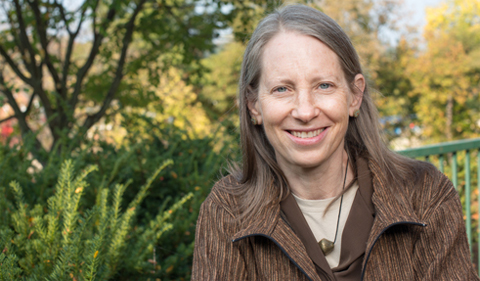
Dr. Diane Ciekawy
by Alex Paoletti ’20
Dr. Diane Ciekawy, Associate Professor of Anthropology at Ohio University, presented “Discursive Traditions of the Mijikenda Azhere a Kaya: Indigenous Knowledge for Social and Political Transformation” at the first international conference on African Studies held by the African Studies Research Center at Kisii University in Kisii, Kenya, in July.
The topic of this year’s conference was Recovering, Digitizing and Practicalizing Indigenous Knowledge. The goal of the conference was to provide information gathered through fieldwork on the cultural systems of various indigenous peoples of Africa, understand their traditions, and offer scientific solutions to the problems indigenous people face.
Ciekawy’s presentation centered on the Azhere a Kaya, a group of religious leaders of the Mijikenda, who live on the coast of Kenya. The Kaya organization addresses disagreements between their people, and seek solutions that inspire a brighter future. Research shows that many of the techniques used by the Azhere a Kaya have remained consistent over the years, which offer implications for the transformation of the society at large.
Abstract: The Azhere a Kaya organization in Mijikenda society provides many forms of leadership in Mijikenda communities. As religious specialists, azhere a kaya diagnose and treat collective afflictions. As legal specialists, they meditate and adjudicate disputes and provide guidance for social healing (Ciekawy 2000). As a political body that monitors the world in which Mijikenda live, they encourage society to contemplate difficulty and disorder, and direct society towards positive developments (Mkangi 2014). This paper examines the kinds of knowledge learned and practiced in the Kaya organization of Rabai that concern rules for dialogue, problem solving styles, and ways of building consensus. These forms of knowledge have great applicability for the wider society (Smith 2012). The methods and forms of discourse that characterize behavior in Kaya meetings and problem solving groups have maintained a high degree of consistency over time. Based on a series of observations from the 1980s, 1990s, and interviews with azhere a kaya of Rabai in the 1980s and 2006, this paper focuses on these methods and forms as socio-political knowledge for human transformation.



















One Comment